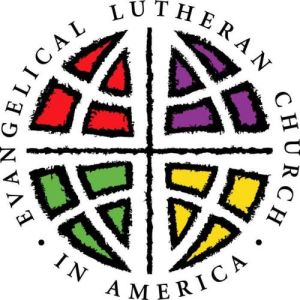
Rabbi Earl Jordan takes the Bernie Madoff scandal personally.
Madoff, you might recall, is the New York financier who is now in prison for cheating thousands of investors out of about $65 billion. His crimes sent a wave of disgust throughout the Jewish community.
“You can imagine how the Madoff scandal embarrassed and angered us,” said Jordan, the new rabbi at B’nai Sholom Congregation near Bristol. “Jews are fond of talking about the list of Nobel Prize winners (who are Jewish). Not that anyone expects his child will be a Nobel Prize winner because of that, but with our history, we’ve had some need of building confidence. When we have somebody like a Madoff, he’s such an embarrassment to the whole community.”
During this same phone conversation, Jordan mentioned the July arrests of 44 people in New Jersey, including five rabbis, who were charged in an elaborate scheme that involved international money laundering and the sale of human body parts.

“It’s been a hard year for Jews,” he said.
Spiritually speaking, that year is coming to an end. Tomorrow marks the end of the most important 10-day period in the annual Jewish calendar: Yamin Nora’im, literally “the days of awe,” or, as they are more commonly called, the High Holy Days.
They began last week with Rosh Hashanah, the Jewish New Year, and conclude tomorrow with Yom Kippur, the Day of Atonement. Yom Kippur is observed with a 25-hour fast, excluding young children and the sick or infirm, and an extended worship service. The day is solemn but not sad because when the day ends at sunset, Jews will feel released from burdens of sins committed against God in the past year and invigorated by anticipation for the year to come.
But these observances are not between one person and God. They are centered in the community, in large degree because Jews regard the sins of one person as shared to some extent with their community. Madoff’s transgressions caused spiritual shockwaves, not just financial ones.
“When one person sins, the stain is on the whole people,” Jordan said.
That also helps explain why Yom Kippur means forgiveness only from offenses against God, not against other people. Jews must reconcile directly with anyone they have wronged. In fact, rabbis of old taught that a person would not be forgiven at all until he had “appeased his neighbor.”
“We feel a communal responsibility,” Jordan said. “We say our prayers in the plural.”
Jordan, a 75-year-old Boston native, has come out of retirement for the second time to serve B’nai Sholom. (“I was retired four years and I was bored out of my skull,” he said.)
During a career lasting almost a half century, Jordan served congregations in seven states, taught at universities and administered Jewish nonprofit organizations. He moved to East Tennessee a little over a month ago.
He is rooted in the more liberal Reform tradition but is also a member of the Conservative denomination, a breadth of perspective the congregation shares because of both history and necessity, since it is probably the only synagogue between Roanoke, Va., and Knoxville.
“I was fascinated by the circumstance here: a small congregation that was willing to go to the expense and trouble of a full-time rabbi,” Jordan said. “I loved the idea of people coming from so wide a geography. I thought that would be interesting, and the people here sold me. They seemed so warm and welcoming.”
 Jordan’s arrival has kindled new interest in the 105-year-old congregation, which counts 55 households as registered members. The synagogue was full during last Friday’s Rosh Hashanah service, with at least 120 worshipers.
Jordan’s arrival has kindled new interest in the 105-year-old congregation, which counts 55 households as registered members. The synagogue was full during last Friday’s Rosh Hashanah service, with at least 120 worshipers.
To Jordan, that’s a start.
“My agenda is to make the congregation a little more welcoming than it had been,” he said. “The same people had been doing the work to maintain the congregation … but they’re burned out. They’ve needed some new motivation and some new programming.”
He comes with ideas and is already talking with members about the congregation’s future, conversations he hopes to extend into regular Saturday-morning gatherings. It’s too early to know exactly what will develop, he said, but he feels comfortable in his new community.
“I’ve found a fertile place to develop new friendships,” he said. “That’s one of the things I am so impressed with. I don’t feel like a stranger.”
Johnson City (Tenn.) Press, 26 Sept 2009.
 Being a parent is so important to George Barna that he, his wife and their young daughters left their conventional church and, with a small group of other families, started a house church four years ago. It is centered on a simple, salient idea: that their main task as a church body is to rear godly children.
Being a parent is so important to George Barna that he, his wife and their young daughters left their conventional church and, with a small group of other families, started a house church four years ago. It is centered on a simple, salient idea: that their main task as a church body is to rear godly children.
 “Some elements have to do with realizing that (parenting) is my priority in life,” he said. “Look at your values and beliefs. What are you trying to build in the child? What are the goals you set, and how are you measuring them? Part of it is just wrapping your head around what it means to be a parent. The ability to bring life into this world is a privilege, but it comes with a huge responsibility.”
“Some elements have to do with realizing that (parenting) is my priority in life,” he said. “Look at your values and beliefs. What are you trying to build in the child? What are the goals you set, and how are you measuring them? Part of it is just wrapping your head around what it means to be a parent. The ability to bring life into this world is a privilege, but it comes with a huge responsibility.” Pat Griggs of Johnson City, a self-described activist, traces her “call” to a quarter century of interfaith involvement.
Pat Griggs of Johnson City, a self-described activist, traces her “call” to a quarter century of interfaith involvement. These goals sound praiseworthy, but the URI has been the object of criticism from its start. Various religious groups, including the Roman Catholic and Eastern Orthodox churches and several evangelical Christian bodies, keep the URI at arm’s length. (For examples, go
These goals sound praiseworthy, but the URI has been the object of criticism from its start. Various religious groups, including the Roman Catholic and Eastern Orthodox churches and several evangelical Christian bodies, keep the URI at arm’s length. (For examples, go  James Nipper has his work cut out for him.
James Nipper has his work cut out for him. To its credit, the ELCA has not taken the easy path. If the denomination’s utmost concern was keeping membership up or maintaining some kind of superficial peace, it could have settled matters years ago. (The ELCA is by far the largest of several Lutheran bodies in the U.S., but like other mainline Protestant denominations, it has been shrinking for decades. The denomination
To its credit, the ELCA has not taken the easy path. If the denomination’s utmost concern was keeping membership up or maintaining some kind of superficial peace, it could have settled matters years ago. (The ELCA is by far the largest of several Lutheran bodies in the U.S., but like other mainline Protestant denominations, it has been shrinking for decades. The denomination 